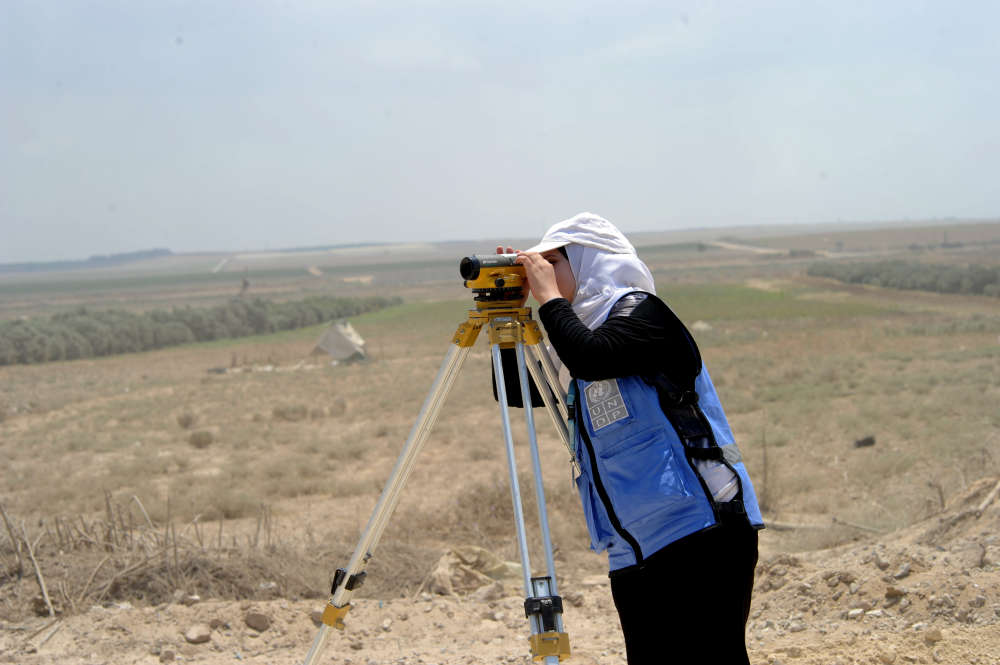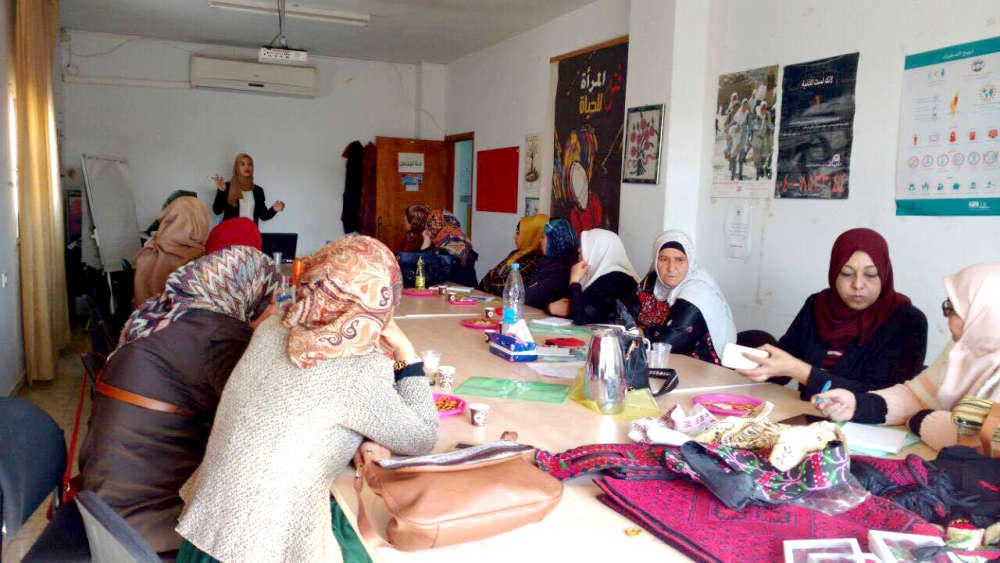As other women in the MENA region, Palestinian women face numerous challenges that hinder their ability to participate in many aspects of life. However, Palestinian women carry compound burdens on their shoulders. Women in Palestinian society have been struggling for a long time to gain their rights not just as women, but also as human beings. Palestinian laws and legislation are discriminatory against women, and the local women’s movement has been defending the rights of women by influencing society and demanding from policy makers a positive change in the legal system in order to protect and empower women. In addition, the practices and restrictions imposed by the Israeli occupation affect the daily lives of every Palestinian woman, making it even harder for women to consider increasing their participation in the economic, political, and social arenas.

In many countries, women make up a majority of the workforce.i However, they continue to receive unequal pay and unequal access to high-level positions and higher-paying jobs. In the Palestinian case, even women’s representation in the workforce is minimal. According to the Palestinian Central Bureau of Statistics (PCBS), women’s labor-force participation rate in 2017 reached 19.3 percent compared to 71.6 percent for that of men.ii
There is a prevailing assumption that increasing women’s economic participation – hence helping them achieve economic independence – would increase their ability to influence decision-making processes, increase their participation rate in political life, and help change society’s attitude towards women. Palestine’s society is still based on patriarchal structures and the traditional division of roles between men and women. When men are dominant in families, it is more difficult to increase women’s influence on decision-making processes on the national, societal, and family levels. However, the economic hardship within Palestinian society could serve as a positive factor, assuming that increased economic independence of women would improve not only their contribution to the GDP but also their participation in social and political fields, which would positively impact society as a whole.
Many nonworking Palestinian women state that they are prevented from attending workshops, training sessions, and capacity-building programs – and even from participating in the election process. Men justify banning women from participation in activities outside the home (especially in rural areas) by asserting that a woman’s only role is as a caregiver who does the housework and raises children. They do not see any need for women to “waste” their time on any other activities. Given that the men are the working breadwinners, they assume the right to control all women’s activities and available resources. The question is: how would this attitude be changed if women were to work and receive income?
Through delivering training sessions and workshops to women activists and asking them how their jobs have affected their roles in their families and in their societies, the Women’s Center for Legal Aid and Counselling (WCLAC) has found that many women report that their engaging in work outside the home has changed their families’ attitude towards them and increased their families’ appreciation and respect. When women receive income, their families’ perception of their role changes. Furthermore, women report that families impose less control on their movements when they work in a regular job, and that they have more control over their income. Married working women state that their husbands are increasingly accepting a share of the responsibilities at home. This not only reflects men’s increased appreciation of women’s financial contribution to the family, but also working women’s increased awareness of gender discrimination and of their rights as women.
Working women are generally more involved in awareness-raising activities, organized by women’s organizations to increase society’s awareness of gender-based violence and gender discrimination. And gender-based violence not only refers to physical violence but also to economic and social violence. It is worth mentioning that non-income-related skills that women gain through their economic participation, such as advocacy skills, increase their confidence and agency. Moreover, the networks women build through their work and involvement in social and political activities play an important role in increasing their participation in decision-making processes and the political arena.
Many women, through their work, have been able to take part in committees, councils, and other important memberships that broaden their potential and lead them to take on significant roles in their communities, which eventually enable them to initiate positive change. Such developments would not be possible if women had not changed the attitudes of their families, since this is the first step in influencing the community.

Photo courtesy of the author.
Amani Aruri holds a master’s degree in economics from Birzeit University. She has managed innovative programs that help youth and women in Palestine aim for brighter careers. She is currently an advocacy team leader at the Women’s Centre for Legal Aid and Counselling, general secretary of the Palestinian Economists Association, and an assembly member of UNWomen Gender Innovation AGORA.
i Janell Fetterolf, “In many countries, at least four-in-ten in the labor force are women,” Pew Research Center, March 2017, available at http://www.pewresearch.org/fact-tank/2017/03/07/in-many-countries-at-least-four-in-ten-in-the-labor-force-are-women/, and “Women in informal economy,” UNWomen, available at http://www.unwomen.org/en/news/in-focus/csw/women-in-informal-economy.
ii “Press Release on the Results of the Labor Force Survey in Palestine, 2016,” Palestinian Central Bureau of Statistics, available at http://www.pcbs.gov.ps/post.aspx?lang=en&ItemID=1854.



